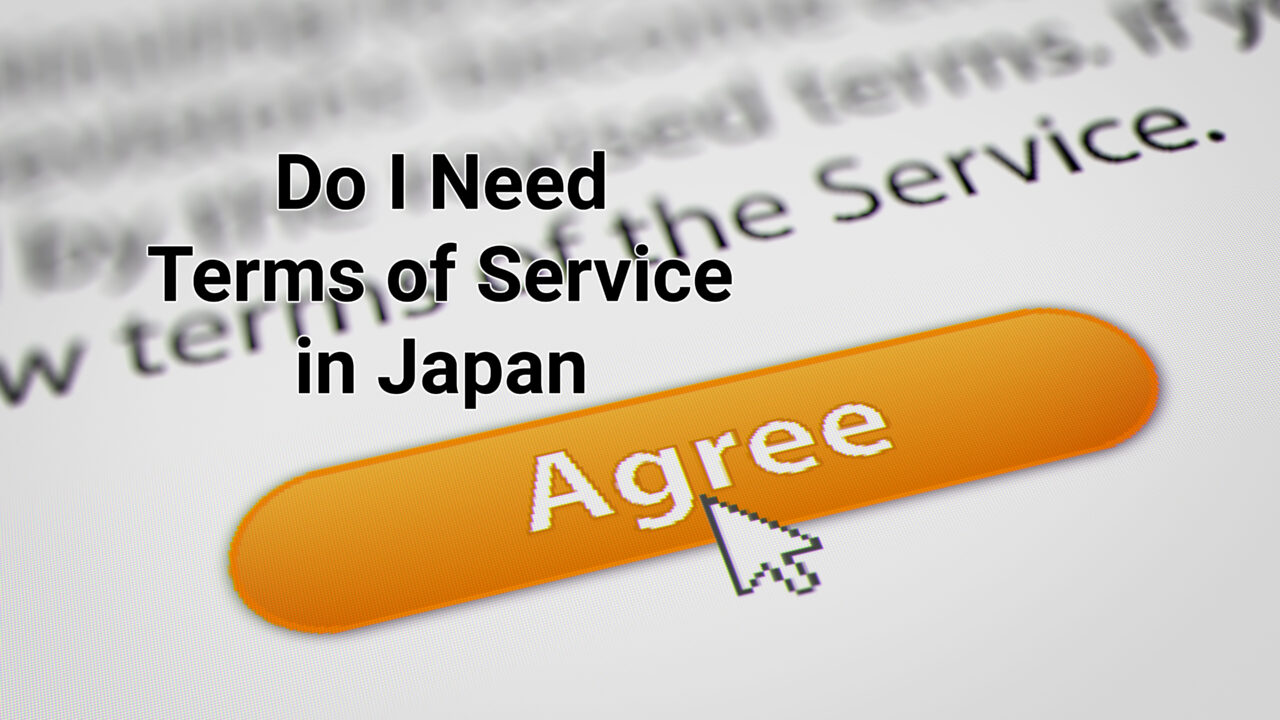We would like to provide IT services to our clients in Japan. Do we need to create Terms of Service to accept applications from users on the Web? In the first place, we are not sure of the difference between Terms of Service and Service contracts, so we want to learn from the basics.
Difference between Terms of Service and a Contract
Terms of Service (or Terms of Use) are terms and conditions regarding use of certain services. Since customers agree to the Terms of Service on or before applying for the use of the services mainly on the internet, the conditions stipulated in them constitute important parts of the service agreement.
On the other hand, instead of using the Terms of Service, companies sometimes enter into a separate contract with each customer. In the past, contracts were usually concluded by both parties signing or sealing the written agreement with each other. Recently, however, electronic contracts have become widespread, so it is no longer necessary to create a written document.
Whether you should create Terms of Service or not.
Whether you should provide services under Terms of Service or whether you should enter into a written or electronic contract depends on the nature of your business.
Expensive Services for small number of users
For example, if your company provides expensive services to a relatively small number of customers, you may want to enter into a contract with each customer each time, rather than by using Terms of Service. This is because contracts are more legally stable way to enter into a contractual relationship than accepting an application based on the Terms of Service.
When an application is received on the Web based on the Terms of Service, it is possible that an employee of the company has applied for the service without authority. And in some cases, users claim that they were not aware of the contents of the Terms of Service. In contrast, since a representative of the company signs or seals on contract, it is unlikely that disputes over the formation of the agreement will arise if you make contract with each client. In addition, large companies often hesitate to enter into transactions without a contract.
Not Expensive Service for Many users
On the other hand, if the price of transactions with each customer is not so large and you wish to receive applications from a large number of customers, Terms of Service would work better.
Even though electronic contracts are becoming more popular, it still takes a certain amount of time and efforts to conclude a contract. In addition, when a draft of a contract is proposed to the other party, it is common to be asked to revise the condition. On the contrary, using Terms of Service requires very little time and effort, because the user only needs to agree to the Terms of Service on the Web and then apply for the service. In addition, since it is widely understood that Terms of Service in basically not negotiable, customers do not often ask modification of the conditions.
Thus, in the case of a business where each transaction is of a high value and you are dealing with a small number of clients, you would probably want to enter into a contract with each client. On the other hand, if each transaction is not so expensive and you want to provide the same service to a large number of customers, it is better to do business under the Terms of Service.
 We recommend Ashita no Shishi Legal Office if you want to hire a lawyer to prepare Terms of Service
We recommend Ashita no Shishi Legal Office if you want to hire a lawyer to prepare Terms of ServiceWhat kind of Terms of Service should you create?
Appropriate Conditions for your services
By searching the Internet or reading books, you can find various template for Terms of Service. You can use such a template as a reference to create your own one.
However, it is very rare that the template can be used as is for your company’s own services. This is because the services offered by each company vary from company to company. You need to create the Terms of Service that is appropriate for your services.
Compliance with laws and regulations in Japan
The Terms of Service must be drafted in accordance with the laws and regulations in Japan. From the standpoint of a service provider or platform provider, you would want to create Terms of Service that broadly exempts your company from liabilities as much as possible. In terms of risk management, that is right approach.
However, if you create a disclaimer that is too broad, you may violate the Consumer Contract Act or other laws, and as a result, the disclaimer may be invalid.
In addition, if intellectual property rights may arise in the process of using the service, it is necessary to clearly stipulate who will acquire the rights.
Since drafting Terms of Service requires knowledge of laws and regulations, we recommend that you consult with an attorney with experience in corporate legal matters to review the contents of the Terms of Service.
 We recommend Ashita no Shishi Legal Office if you want to hire a lawyer to prepare Terms of Service
We recommend Ashita no Shishi Legal Office if you want to hire a lawyer to prepare Terms of Service











